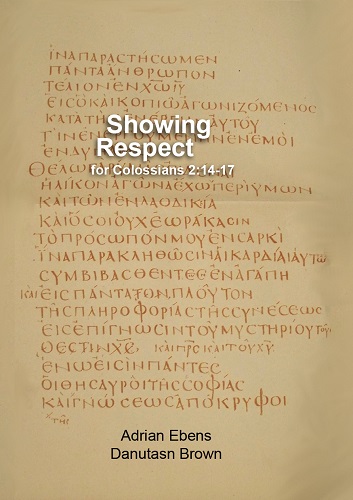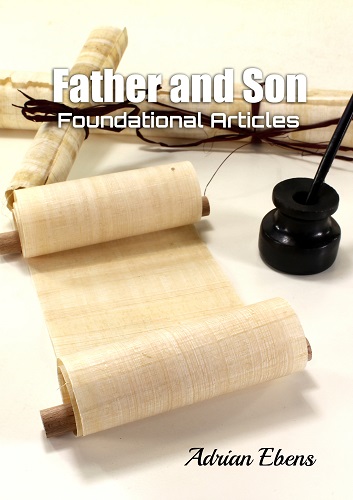Leo Tolstoy - The Trinity, I Deny It!
[I am replacing this recent article by Alex Ge with an expanded introduction. Gary Hullquist]
Count Lev Nikolayevich Tolstoy (1828-1910, better known as Leo) was a vegetarian and contemporary of Ellen White who rejected the Trinity. Best known for “War and Peace,” his epic 4 volume historical fictional story of Russians affected by Napoleon’s invasion in 1805. His “Confession”, a story of his life and how he reached the point of contemplating suicide at age fifty, is an important prelude to understanding how he discovered God and changed his life to follow the teachings of Jesus, living not as an aristocrat but a peasant among the common people, giving of his own means to save a pacifist group, the Doukhobors, by aiding in their migration to Canada, and encouraging Ghandi in India to follow his example of passive resistance.
The excerpt below is from his religious treatise, “Critique of Dogmatic Theology” found in The Complete Works of Count Tolstoy, Volume 13, found on Google Books, pages 186-191.
For me, a man educated in the spirit of the Christian faith, who after all the erring of his life has retained a dim consciousness of what there is true in it; for me, who by the blunders of life and the seduction of reason have reached the negation of life and most terrible despair; for me, who have found salvation in uniting [187] with it the spirit of religion, which I recognized as the only divine force which moved humanity, and who have been in search of the highest expression of this religion, which would be accessible to me; for me, who above all believe in God my Father, through whose will I exist, suffer, and agonizingly search after his revelation; for me to admit that these senseless, blasphemous words ["God is one and three"] are the only answer which I can receive from my Father in response to my entreaty as to how to understand and love him, for me this is impossible.
It is impossible to believe that God, my good Father (according to the teaching of the church), knowing that my salvation or perdition depends on my comprehension of him, should have expressed the most essential knowledge about himself in such a way that my reason, which he has given me, should not be able to comprehend his expressions, and (according to the teaching of the church) should have concealed all the truth, so important to men, under indications in the plural number of verbs and, in any case, in an ambiguous, obscure interpretation of words, such as the Spirit and the Son, Jesus' farewell conversation in St. John, and in the spurious verse in the Epistle [1John 5:7], and that my knowledge of God and my salvation and that of billions of men should depend on a greater or lesser verbal glibness of all the Renans and Makaris [philosophers and poets]. I shall believe him who has the best arguments.
No! If it were so, God would have given me such an intellect that 1=3 would be as comprehensible as it is impossible now, and such a heart that it would be a joy to admit three gods, whereas now my heart revolts against them, or, at least, he would have given all that to me in a definite and simple manner, and not in debatable and ambiguous words. God cannot have commanded me to believe. The very reason why I do not believe is because I love, worship, and fear God. I am afraid to believe the lie which surrounds us and to lose God. That is [188] impossible, and not only impossible, but it is quite clear that it is not the truth, that I was mistaken in thinking that I could find an answer and a solution of my doubts in the church. I had intended to go to God, and I found my way into a stinking bog, which evokes in me only those feelings of which I am most afraid: disgust, malice, and indignation.
God, that incomprehensible, but still existing one, by the will of whom I live! Thou hast implanted in me this striving after the knowledge of thee and of myself. I have erred, I have searched after the truth in the wrong place. I knew that I erred. I have pampered my evil passions, and I knew that they were bad, but I have never forgotten thee; I have always felt thee, even in moments of erring. I came very near perishing, when I lost thee, but thou gavest me thy hand, and I grasped it, and life was illuminated for me. Thou hast saved me, and I am searching after this alone: to come near unto thee, and to understand thee as much as is possible. Help me, teach me! I know that I am good, that I love and want to love all, and want to love truth. Thou art the God of love and truth, take me nearer unto thee, disclose everything to me, so that I may be able to understand about myself and about thee!
And the good God, the God of truth, replies to me through the mouth of the church: "The Deity is one and trine. Oh, most glorious transformation!"
Go yourselves to your father, the devil, you who have taken the keys of the kingdom of heaven and have not yourselves entered it and have closed it against others! You are not speaking of God, but of something else.
p. 189
Such is the doctrine about the Trinity in the radical Christian dogma, as expounded in fifty pages [of the book Theology]. On this dogma are based, and with its refutal are refuted, the dogmas about the Redeemer and Sanctifier, and every one of the dogmas which refer to the house-management of our salvation. I reject this dogma. I cannot help rejecting it, because by accepting it, I should be renouncing the consciousness of my rational soul and the cognition of God. But, while rejecting this dogma, which is so contrary to human reason, and which has no foundation either in Scripture, or in Tradition, I still find inexplicable the cause which has led the church to profess this senseless dogma and so carefully pick out the imaginary proofs to confirm it. That is the more surprising to me since that terrible, blasphemous dogma, as expounded here, can apparently be of no use to any one or in anything, and since it is impossible to deduce any moral rule from it, as indeed is evident from the moral application of the dogma—a collection of meaningless words, which are not connected in any way.
p. 191
Not only is it senseless and not based on Scripture or on Tradition, and nothing comes of it; in reality, according to my immediate observation of the believers, and according to my own personal recollection of the time when I myself was a believer [in the Trinity], it turns out that I never believed in the Trinity and never saw a man who believed in the dogma of the Trinity. Out of a hundred men and women among the people not more than three will be able to name the persons of the Trinity, and not more than thirty will be able to say what the Trinity is, and will not be able to name the persons, but will include among them St. Nicholas the Miracle-worker and the Mother of God. The others do not even know anything about the Trinity. Among the masses I have not come across any conception about the Trinity. Christ is called the God-man, as it were, the eldest of the saints. The Holy Ghost is entirely unknown, and God remains the incomprehensible, almighty God, the beginning of everything. Nobody ever prays to the Holy Ghost, no one ever invokes him. In the more cultured circles I have med very many who very fervently believed in Christ, but never have I heard the Holy Ghost mentioned except for the purpose of theology discussion. The same was true of me: during all those years when I was an Orthodox believer the idea of the Holy Ghost never entered my mind. The belief in and definition of the Trinity I have found only in the schools, and thus it turns out that the dogma of the Trinity is not rational, not based on anything, is good for nothing, and no one believes in it, while the church professes it.
Leo Tolstoy 1881





